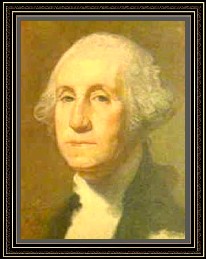A Conservative Viewpoint
- If Every Day Were Like Christmas
Article by Bob Steinburg
- Edenton, North Carolina: Cradle of the Colony

I grew up only 35 miles from the campus of Syracuse University. I jumped at every chance to see the Saltine Warriors, as they were known back then, play college football in the venerable Archbold Stadium. Jimmy Brown, Ernie Davis, Floyd Little, Jim Nance, John Mackey and Larry Csonka were but a few of the home team football favorites who trod upon that hallowed ground. Crisp fall Saturday afternoons provided countless memories I shall always treasure.
It’s only natural for a kid to like the same teams as their dad. Both of our boys are huge Syracuse fans. As a result we had more Syracuse apparel than we could wear. One day without telling anyone I decided to take the old college clothing that was gathering dust in the attic and stacked in the corners of closets and give it to the Salvation Army.
Months later as Thanksgiving approached, our family volunteered to feed the homeless and needy in the inner-city of Richmond, Va., where we were then living. As those being served began winding their way through the food line both boys opened their eyes in amazement. It seemed every third or fourth person waiting to be fed, was wearing “Syracuse Football” or “Syracuse Basketball Garb.” Dad, can you believe all the Syracuse fans there are in Richmond?” asked one of my sons.
Last week I had the privilege of being a Salvation Army bell ringer. For those who don’t know, the Salvation Army is one of the finest organizations in America. Its mission is “to preach the gospel of Jesus Christ and to meet human needs in His name without discrimination.” From disaster relief, to feeding, clothing and sheltering the needy, this organization has served on the front lines of rescue, recovery and deliverance since the 1800s.
Many retailers no longer permit this “Army” to deploy in front of their establishments. Others limit its presence to two or three times a season. They say that allowing the Salvation Army to solicit would open the door to every other organization demanding equal time. I don’t see it like that. The Salvation Army doesn’t solicit anything. The kettle is there next to the bell ringer for those who choose to give of their own free will. Other than “thank you,” “God bless you,” and “Merry Christmas,” few words are exchanged.
Although no one can really know for certain what someone has or doesn’t have financially, many of those most willing to donate appeared to have limited means. These were folks who pulled out a few coins, or a rumpled up bill or two from deep within their pockets, wallets or purse. It was joyful giving. These good people would often joke, “Well, you’re the third kettle I’ve given to today, but it’s a good cause and I want to do what I can.” There were others, some who appeared to have more substantive means, who either said they had already contributed or refused to even make eye contact.
America gives almost $300 billion to charities, with 65 percent of it coming from average people with limited resources. Part of embracing the American spirit has always been to help those that need a hand up. America is the world’s largest giver, donating twice as much as the country occupying second place.
Claire Gaudiani, a former president of Connecticut College, is the author of a 2003 book, entitled: “How Philanthropy Drives the American Economy and Can Save Capitalism.” She argues that we need charity because we can’t rely on government to fix all of our nation’s many problems. Why? Because government can’t afford to do so without taxing us at levels that could result in a taxpayer revolution. We’re beginning to see signs of that already.
There was a time before government social programs when families, churches and communities looked out for their own. The extended family was the norm. While we may never want to return to those times fully, we certainly can learn a thing or two.
When many of us who could afford to move from the small inner city homes with the tiny front porches or stoops, to suburbia with the large back decks and landscaped fenced-in yards, we may have gained more privacy, but sadly lost our kindred sense of community purpose. When we can no longer touch and feel the pain around us, we can become impervious to the needs of others.
I suspect many who contributed to the kettle I manned last week are front-stoop sitters. They see and feel the pain and poverty from the first row. Perhaps that explains why their coins and well worn bills were so carefully placed within this kettle of hope.
Giving generously and unselfishly shouldn’t be just at Christmas. Our burgeoning federal and state bureaucracies with their increasingly fragile and dwindling checkbook balances may be able to supply basic sustenance to those in need, but can’t possibly provide all of the nurturing necessary to heal and restore ones dignity and self respect. That job is the responsibility of the community of man; not just at Christmas, but every day of our lives.


0 Comments:
Post a Comment
Subscribe to Post Comments [Atom]
<< Home